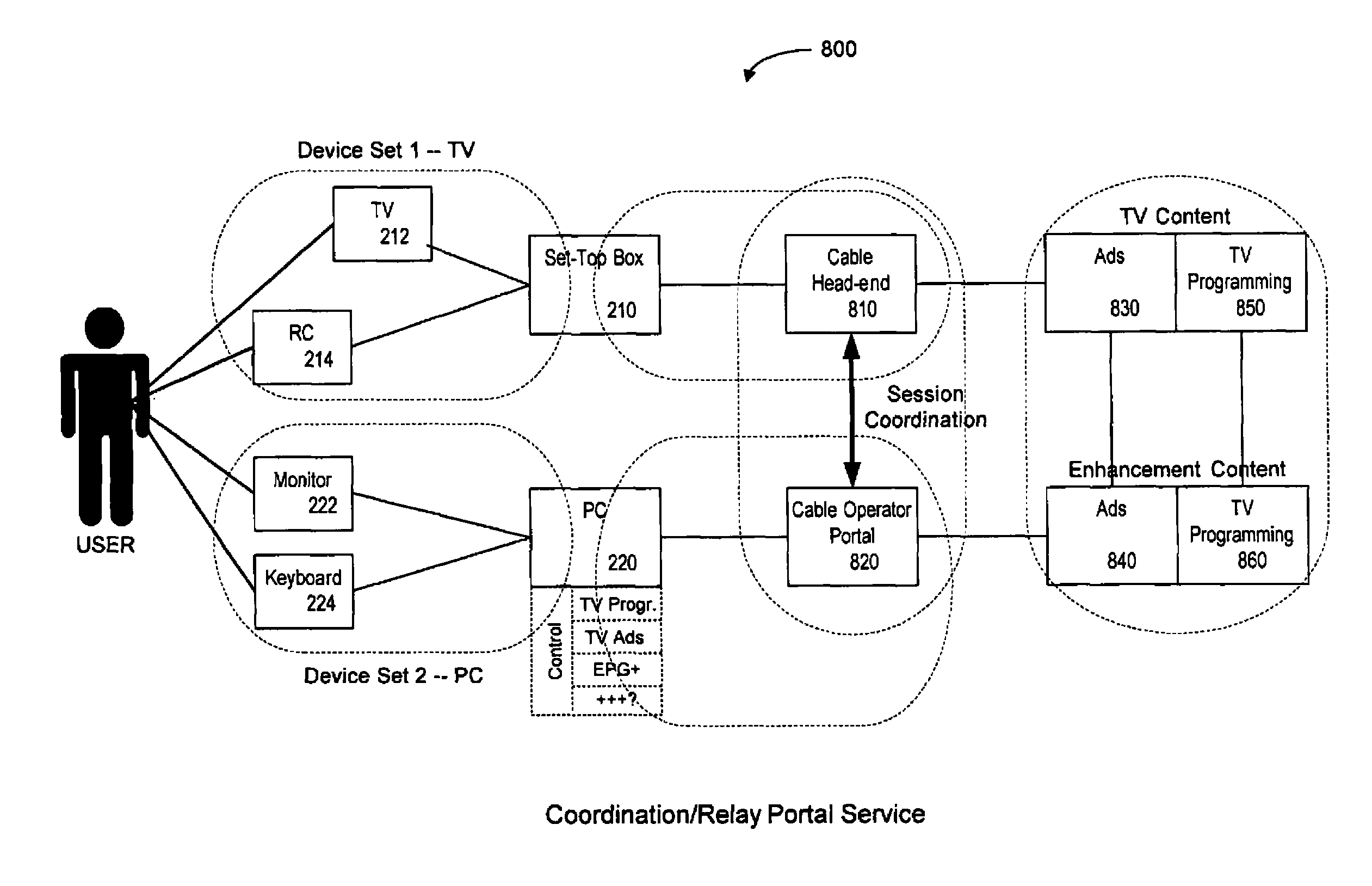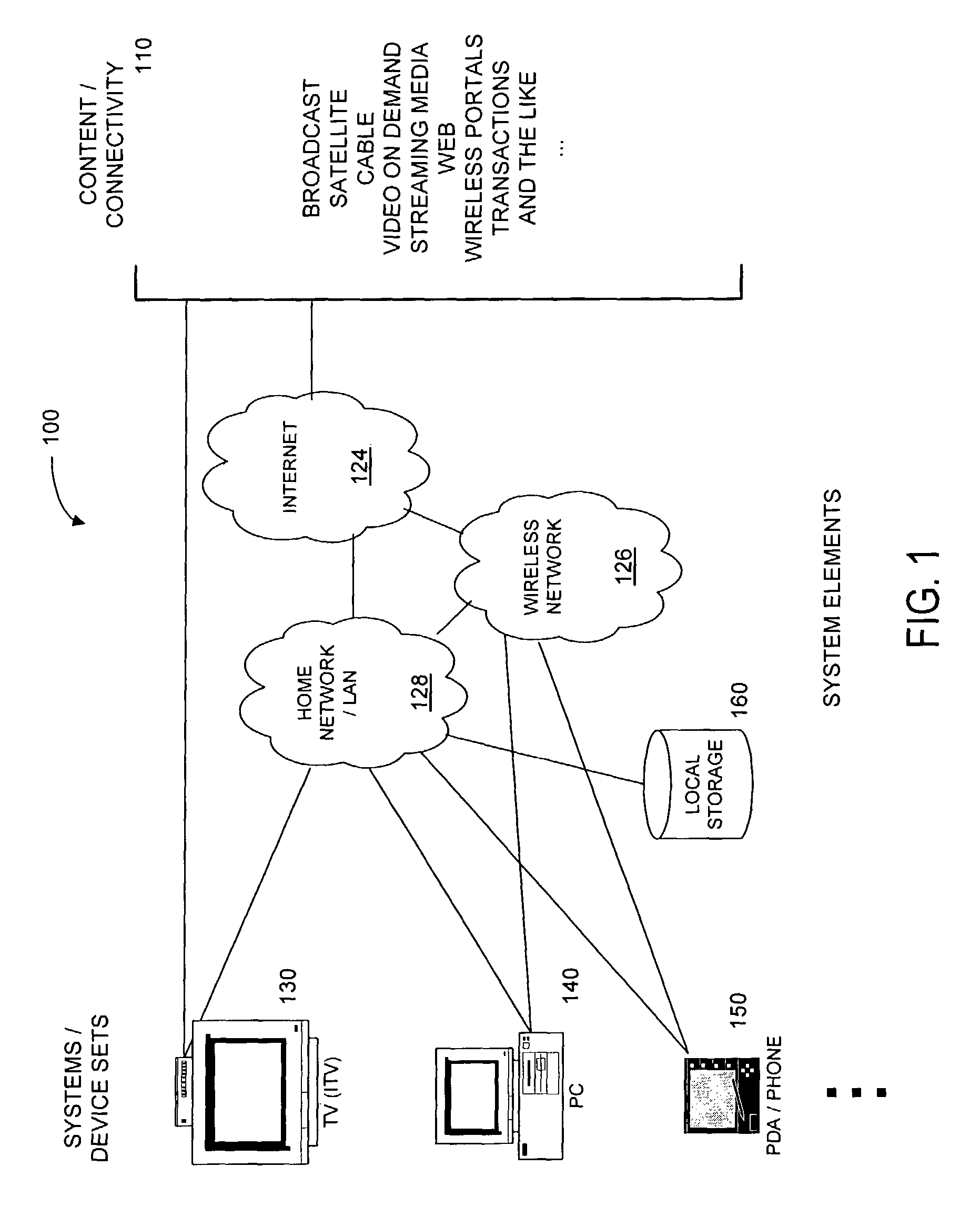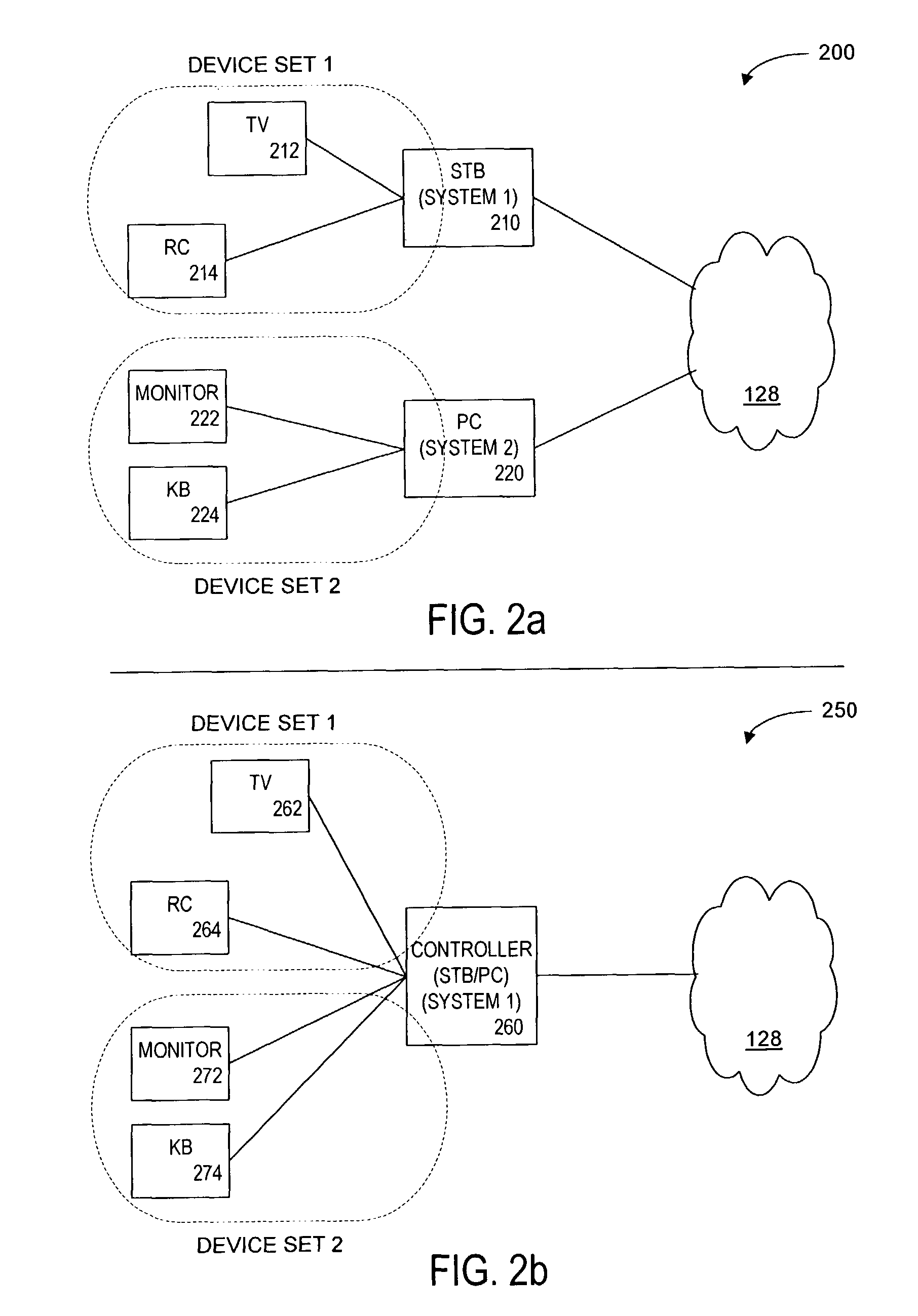Method and apparatus for browsing using multiple coordinated device sets
a technology of coordinated device sets and browsing methods, applied in the field of interactive television and similar interactive hypermedia, can solve the problems of severely limited the appeal of itv, unsatisfactory features, and a huge gulf in the nature of the user experience of itv and computer-based media such as the world wide web
- Summary
- Abstract
- Description
- Claims
- Application Information
AI Technical Summary
Problems solved by technology
Method used
Image
Examples
Embodiment Construction
[0010]According to embodiments of the present invention there are provided systems and methods for navigating hypermedia using multiple coordinated input / output device sets. Embodiments of the invention allow a user and / or an author to control what resources are presented on which device sets (whether they are integrated or not), and provide for coordinating browsing activities to enable such a user interface to be employed across multiple independent systems. Embodiments of the invention support new and enriched aspects and applications of hypermedia browsing and related business activities.
BRIEF DESCRIPTION OF THE DRAWINGS
[0011]Further aspects of the instant invention will be more readily appreciated upon review of the detailed description of the preferred embodiments included below when taken in conjunction with the accompanying drawings, of which:
[0012]FIG. 1 is a block diagram of an exemplary assemblage of user systems, networks, and remote services for implementing certain emb...
PUM
 Login to View More
Login to View More Abstract
Description
Claims
Application Information
 Login to View More
Login to View More - R&D
- Intellectual Property
- Life Sciences
- Materials
- Tech Scout
- Unparalleled Data Quality
- Higher Quality Content
- 60% Fewer Hallucinations
Browse by: Latest US Patents, China's latest patents, Technical Efficacy Thesaurus, Application Domain, Technology Topic, Popular Technical Reports.
© 2025 PatSnap. All rights reserved.Legal|Privacy policy|Modern Slavery Act Transparency Statement|Sitemap|About US| Contact US: help@patsnap.com



